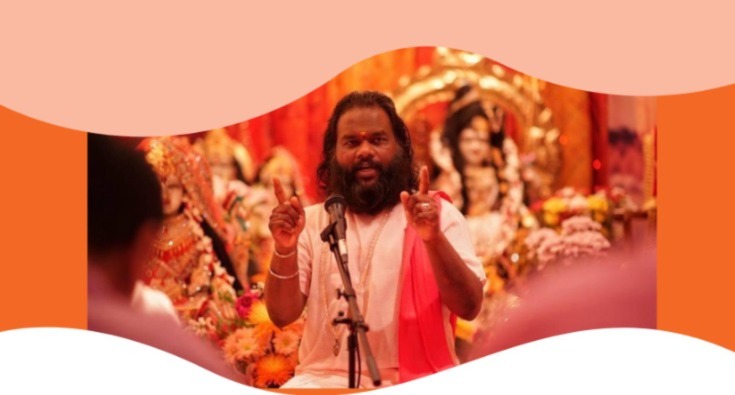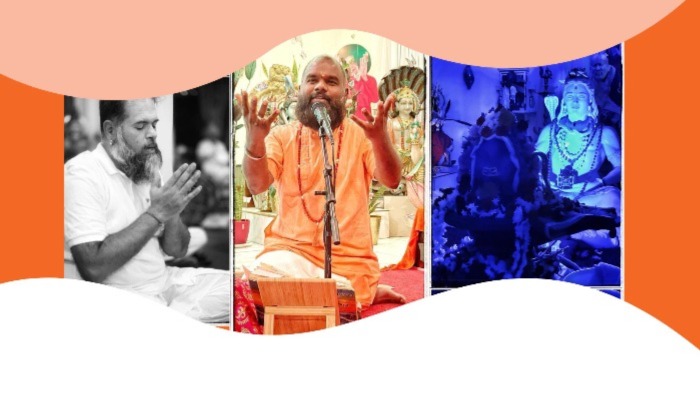The answer to that question depends on your aim in this life. If you wish to realise your true nature, to become free from worry and tensions, and to attain the ultimate spiritual freedom and bliss, then it would be a wise start.
For many spiritual seekers, they start with puja and worship and when they come to advaita Vedanta, the philosophy of Oneness (non-dualism), they say, ‘I am God, so why should I worship anyone?’. At the highest truth this is correct. However, such people do not live in non-duality – if you say one thing to them, they get over-traumatised as they live in so much maya!
Remember this my children, performing your daily puja and worship is your bread and butter. It is the foundation of your start on the spiritual path. It is the daily habits that brought you up to here. Never throw them away. Always remain loyal and true to your Guru, your beloved deity, your God. How else can you show your gratitude, your love and your devotion? Remember, love is devotion and devotion is love.
When you experience Oneness (non-dualism) you may still perform your worship, but you will experience (not conceptualise) that the worshipper, the act of worship and the One being worshipped are one and the same. Until you can say, hand on heart, this is your experience, please continue with your daily puja and worship.
When you experience Oneness (non-dualism) you may still perform your worship, but you will experience (not conceptualise) that the worshipper, the act of worship and the One being worshipped are one and the same. Until you can say, hand on heart, this is your experience, please continue with your daily puja and worship.
So many people do not understand what we are actually doing when we perform a puja. They blindly and routinely following what their parents told them to do. Try to dive in deeply and understand the deep significance of what you are doing. Conducting a 16-step puja is much like welcoming a revered guest to your home. This is called the Shodashopachara Puja. If you consider the steps, you can understand that what you are doing is welcoming God into your heart, your home and your life:
1. Dhyanam & Avahanam
Meditate and invite the Divine into your heart and home. Your wish to invite someone comes from your heart. You may meditate on God.
2. Asanam
When you invite your guest, you offer them a seat. In the puja, you prepare a place for the deity to sit.
3. Padyam
When a revered guest comes to your home, you wash their feet. In puja, you wash the deity’s feet
4. Arghyam
You offer your guest water and oblation upon arrival in your home.
5. Achamanyam
You offer your guest to sip some water. In puja you sip water three times to purify yourself.
6. Snanam
You may offer your guest to take a shower to feel refreshed. In puja, you perform a bath of the deity with particular ingredients or simply water.
7. Vasthram
A revered guest is often offered clothing, or a shawl for example. In the puja you may offer a cloth or simply a thread to represent clothing.
8. Yagnopaveetham
The guest is offered the sacred thread and similarly the deity is offered the sacred thread.
9. Gandham
You would offer a revered guest some sandalwood paste on their forehead and this is also offered in a puja.
10. Alankaram
The guest may be offered jewellery or ornaments and similarly in puja decorations are offered to the deity to maximise the deity’s beauty.
11. Pushpam
You may offer your guest a bunch of flowers as a token of appreciation and love. In the puja you also offer flowers to the deity.
12. Dhoopam
When inviting a revered guest you would ensure that your home was clean and smelling beautifully, perhaps with a scented candle or incense. Here the deity is offered incense sticks.
13. Deepam
You may turn the light on for your guest and in puja you light an oil lamp and offer the lamp to the deity.
14. Naivedyam
You would feed your guest and in the puja you offer fresh vegetarian food to the deity. Often this is sweet and includes some fresh fruits.
15. Thambulam
After the meal you would offer your guest dessert. In the puja you offer betelnut with cloves and cardamom as a dessert.
16. Arathi
You offer your guest and the deity the sacred light in the form of arathi.
You may perform a daily small worship such as lighting a diya or an incense. That is fine, but never skip it. From this daily habit will come your lifestyle and your love for Guru and God will grow and grow. To remain connected to the Divine in this world is extremely challenging. Performing daily puja or worship helps you to maintain this connection. Great blessings can be experience from your daily offerings of hospitality to your beloved deity and Guru. Never leave it.






